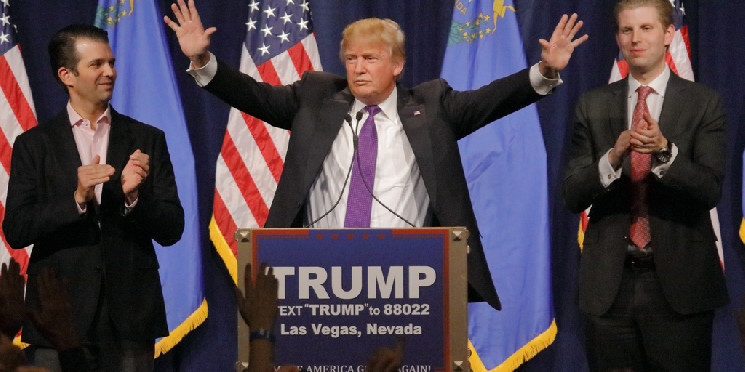
The price of Bitcoin popped and then dropped on Wednesday after the White House pressed forward with U.S. President Donald Trump’s highly anticipated tariffs.
“Our country and its taxpayers have been ripped off for more than 50 years,” Trump said from the White House Rose Garden. “But it’s not going to happen anymore.”
The leading cryptocurrency was recently changing hands around $85,500, down 1.1% over the past hour, according to crypto data provider CoinGecko. During Trump’s remarks, Bitcoin surged as high as $87,800.
Trump said that the U.S. will impose a 25% tariff on “all foreign-made automobiles” starting at midnight. He also mentioned that the U.S. was standing up for “our great farmers and ranchers” but did not mention industry-specific levies.
Trump said that the U.S. will also impose “reciprocal tariffs” on countries that charge levies on American goods, but the total amount for each country will be “approximately half of what they are, and have been, charging us.” That total will reflect the “combined rate of all their tariffs, non-monetary barriers and other forms of cheating” he added.
In addition to the aforementioned measures, Trump said foreign nations will pay a 10% “minimum baseline tariff,” describing it as a for nations to pay for access to U.S. markets.
For weeks, the president has portrayed a self-imposed tariff deadline as “Liberation Day,” promising to impose stiff levies on various goods and America’s largest trading partners.
Cryptocurrency prices have been volatile in the run-up to April 2, whipsawing based on investors’ expectations of how tariffs could blunt economic growth or bolster inflation. Meanwhile, the administration’s messaging on tariffs has shifted nearly day-by-day.
White House Press Secretary Karoline Leavitt said on Tuesday that the president’s team was still “perfecting” its tariff rollout, but overall, Trump had made “a decision and a determination.”
Trump had floated “reciprocal tariffs” on countries that charge levies on American goods, but it was unclear whether those measures could apply more broadly to all countries, or if goods from certain industries or nations would end up being exempt.
Tariffs may impact the Federal Reserve’s calculus on rate cuts this year. If tariffs lead to sustained price pressures, analysts say risk assets like crypto could face continued pressure as the U.S. central bank keeps borrowing costs elevated to combat rising prices.
Amid Trump’s trade kerfuffle, Bitcoin’s price dipped as low as $77,000 last month. And at this point, markets have digested most of the uncertainty surrounding Trump’s trade measures, according to Thomas Perfumo, global economist at the crypto exchange Kraken.
“While headlines around \'Liberation Day\' and the associated tariff measures continue to generate unease, much of the expected impact appears to have already been priced into the crypto market,” he told Decrypt.
Edited by James Rubin
